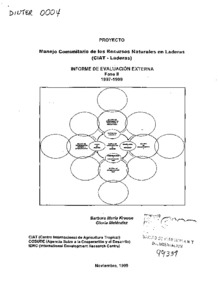About IDRC
A Crown corporation, we support leading thinkers who advance knowledge and solve practical development problems. We provide the resources, advice, and training they need to implement and share their solutions with those who need them most. In short, IDRC increases opportunities—and makes a real difference in people’s lives.
Working with our development partners, we multiply the impact of our investment and bring innovations to more people in more countries around the world. We offer fellowships and awards to nurture a new generation of development leaders.
What we do
IDRC funds research in developing countries to create lasting change on a large scale.
To make knowledge a tool for addressing pressing challenges, we
- provide developing-country researchers financial resources, advice, and training to help them find solutions to local problems.
- encourage knowledge sharing with policymakers, researchers, and communities around the world.
- foster new talent by offering fellowships and awards.
- strive to get new knowledge into the hands of those who can use it.
In doing so, we contribute to Canada’s foreign policy, complementing the work of Global Affairs Canada, and other government departments and agencies.
Resources
Displaying 216 - 220 of 324Searching for sustainable land use practices in Honduras : lessons from a program of participatory research with hillside farmers
Proyecto: Manejo comunitario de los recursos naturales en laderas (CIAT-Laderas): Informe de evaluación externa, fase II, 1997-1999
Municipal policy review : urban agriculture (South Africa)
Meeting: Cities Feeding People : Lessons Learned from Projects in African Cities, 21-25 June 1998, Nairobi, KE
Survey of IDRC completed projects in Southern Africa : policy case study; final report
Diagnosis of headwater sediment dynamics in Nepal's middle mountains : implications for land management
An evaluation of headwater erosion and sediment dynamics was carried out to assess the health of the Middle Mountain agricultural system in Nepal. Controversial statements predicting this system's imminent demise and identifying Middle Mountain farming practices as major contributors to downstream sedimentation and flooding have long been promoted and have suggested the following research hypothesis: soil and sediment dynamics and the indigenous management techniques within headwater Middle Mountains basins do not indicate a deterioration in the health of the agricultural system.







